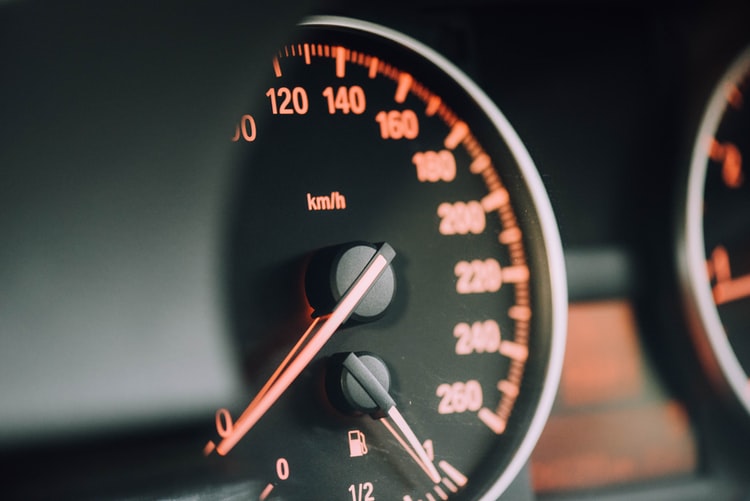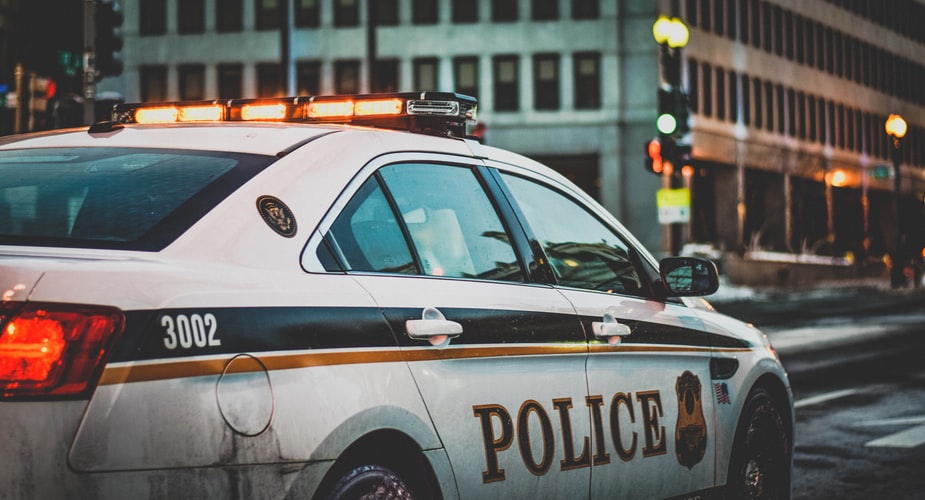Drunk driving, or driving under the influence is a national issue that affects millions of lives every day. In Kentucky alone, 1.5% of adults report that that they have driven after having “too much” within the past month alone. From 2003 to 2012, over 2,000 people were killed in crashes that were involving a drunk driver in Kentucky, placing it among the higher ranked states for amount of fatal crashes involving alcohol.
Compared to the national average, Kentucky isn’t that much of an outlier. Here are some sobering facts about the reality of drunk driving in Kentucky and the rest of the nation:
- About in 1 in 3 traffic deaths in the United States involves a drunk driver.
- Men die in alcohol related traffic accidents at a rate nearly 5 times that of females.
- The most common age group involved in fatal drunk driving accidents are 21-34 year old’s.
- Kentucky is nearly 1 percentage point higher than the nation for rate of death in drunk driving accidents
Drunk Driving Laws

There are laws in place all over the nation to dissuade drunk driving. In fact, all 50 states and the district of Columbia have laws in place to protect the public from drunk drivers who have a BAC at or above 0.08%. In Kentucky, sobriety checkpoints are legal. Sobriety checkpoints allow policy to briefly stop vehicles to see if any drivers are impaired. Along these traffic stops, it is legal to ask drivers to stop and be given breathalyzer tests. Thanks to the efforts of law enforcement, community leaders, and political leaders, measures have been passed that have cut down on the amount of drunk drivers on the road. Here are the strategies that work when it comes to stopping drunk driving.
Zero Tolerance and Minimum Legal Drinking Age
Both of these laws are important measures for combating drunk driving. Zero tolerance laws, such as those found in Arizona, make it illegal to drive with any measurable amount of alcohol in a person’s system. Minimum legal drinking age laws, which in the United States the legal drinking age is 21, help save thousands of lives by discouraging underage drinking and driving.
Sobriety Checkpoints
Sobriety checkpoints allow policy to briefly stop vehicles to see if any drivers are impaired. Along these traffic stops, it is legal to ask drivers to stop and be given breathalyzer tests. Thanks to the efforts of law enforcement, community leaders, and political leaders, measures have been passed that have cut down on the amount of drunk drivers on the road. Here are the strategies that work when it comes to stopping drunk driving.
Ignition Interlocks
Ignition interlocks are installed in some vehicles in order to measure the alcohol content on a person’s breath before they can start their vehicle. If a driver has above a certain BAC, they will become locked out from using their vehicle if their BAC is above zero. These are typically given to individuals after they have been convicted of drunk driving and are an effective means for preventing repeat offenses when it comes to drunk driving. Mandating interlocks for all offenders, including first-time offenders, could have a tremendous impact on the traffic safety.
Multi-Component Interventions
These combine several programs in order to prevent drunk driving from happening. Typically, it involves community mobilization to create action against drunk drivers wherein awareness events are held, memorial services for victims are held, and activists visit bars and restaurants to spread awareness about drunk driving.
Mass Media Campaigns
Mass media campaigns can also be an effective means for helping cut down on drunk driving. These campaigns can help spread messages about drunk driving and persuade people not to drink and drive. Campaigns played during national spots can have the effect of reducing drunk driving if they are especially powerful.
Administrative License Revocation and Suspension Laws
Administrative and License Revocation laws allow police to temporarily remove the license of drivers who either test above a certain BAC or whom refuse to take a breathalyzer test. States decide how long to suspend a license for and a minimum of 90 days is usually effective.
Alcohol Screening and Brief Interventions
Alcohol screening and brief interventions help take advantage of the critical moments when drunk driving offenders are most susceptible to messaging. These measures can also be used to identify people most at risk for alcohol problems and get them the treatment they need. These kinds of programs can be carried out in a health care setting, university setting, or other location to help educate the public and change behaviors to reduce alcohol related crashes.
School Based Instructional Programs
School based instructional programs are effective at teaching children, teens, and young adults about the severity of drunk driving and to never accept a ride from a driver who is inebriated. More evidence is needed to see if these programs can reduce instances of drunk driving, but consensus shows that they have the intended effect of discouraging teens from drunk driving.
How Alcohol Treatment for DUI’s Work
A DUI charge can happen anytime a driver tests for a BAC or Blood Alcohol Content over 0.08%. These charges may arrive in the form of a fine, loss of license, loss of automobile, jail time, and possibly even court ordered addiction treatment. For those who are given court-ordered treatment in part because of a drunk driving charge, there are several things to understand. Each state administers punishment and treatment differently, but here some general operational procedures for how DUI’s are handled on a case to case basis.
Tests
DUI tests are carried out after a driver is stopped for suspicion of drunk driving or because of a sobriety checkpoint in place. A person can only be stopped when an officer has reasonable suspicion that a driver could be operating a vehicle while intoxicated. To support probable cause for the arrest, the officer will usually ask the driver to complete a field sobriety test. During a sobriety test, the police may request that the driver perform some kind of motor control movement to prove they are sober. Some examples include:
- Walking in a straight line
- Balancing on one leg
- Reciting the alphabet backwards
- Following a beam of light from side to side to measure eye movement
- Breathalyzer test
One thing that drivers may not know is that the field sobriety test and breathalyzer test are voluntary. However, while the refusal to take these tests may not be provide police with probable cause to make an arrest, that does not necessarily stop them from being able to make an arrest either. If the officers decide to make an arrest, whether or not a field sobriety test was taken) the next step will involve either being let go or being taken to the police station or a local hospital for DUI testing options. If the driver still does not agree to take a test, according to federal constitutional law, when individuals are in custody they have the right to speak with an attorney and in some states DUI testing needs to wait until after the driver has the opportunity to speak with an attorney.
The results of the DUI testing are what decide if the driver is to remain in custody or not. If above a 0.08 BAC, in any state, this is sufficient means to be convicted of a DUI, DWI (Driving While Intoxicated), or OWI (Operating a Motor Vehicle While Intoxicated). Once the arrested driver is release from custody, they will get a court date and if requested or paid for, a defense attorney.
Mandatory Sentences
Each state has differing levels of penalty for different Dui convictions, but generally speaking the individual will face a fine and driver’s license revocation for a set period of time. Several states have mandatory jail sentences even for the driver’s first offense. Many drivers who are convicted of a DUI are placed on probation and required to perform a community service. In certain circumstances, such as when a minor is in the car or in the case of multiple prior DUI convictions, some jurisdictions will enforce harsher penalties and ask the convicted person to engage in drug education or rehab treatment.
Court-Ordered Treatment
Under the eyes of the law, having a driver’s license is not a right but a privilege. Once the offenders driver’s license revocation period has ended, the convicted driver will be able to get the license back after completing an educational program. Known as a “DUI School”, these online or in-person classes cover drinking and driving as well as other safety issues related to driving while impaired and the importance of staying sober behind the wheel. Some qualifying offenders may also be required to meet with a drug and alcohol counselor who will complete an evaluation to see if the offender may need ongoing treatment for a substance dependency issue. A treatment referral may be made for the offender to attend one of the following or a combination of these:
- Medical Detox
- Intensive Outpatient Treatment
- Residential Treatment
- Local Support Group Meetings (AA, NA)
When determining the level of court-ordered treatment for a DUI, there can be concerns as to the efficacy of the treatment requested. After all, being forced to undergo treatment does no t guarantee that someone will ultimately make the decision to get sober. Recovery is difficult enough a process for people who willingly enter, so why would court-ordered treatment do anything but provide a minor inconvenience. Well, According the National Institute on Drug Abuse, most studies support the findings that individual who are ordered to go to treatment through legal system have treatment outcomes similar to those who entered treatment on their own. Additionally, patients in treatment who are under legal pressure to enter treatment have much higher rates of attendance and remain in rehab for longer periods of time, both of which are factors that positively influence the chances of long term recovery.
Is Alcohol Rehab Necessary Following a DUI?
To answer the question as to whether treatment is necessary following a DUI conviction, the first thing that should be considered is the severity of offense. Any DUI conviction is already a severe offense and proof enough of a need for heavy fines and education. However, not every DUI case indicates a need for treatment in the form of detox, intensive outpatient, or residential treatment. Drug and alcohol counselors will make a recommendation for treatment, but if you worried about yourself or a loved one needing treatment after a DUI episode, these are the outward signs of alcoholism to look out for:
- Ongoing Neglect of Personal, Work, and Social Responsibilities
- Spending Disproportionate Amounts of Time and Money on Alcohol
- Poor Performance at Work and in School
- Continuing to Drink Despite Obvious Negative Consequences
- Facing Legal Problems Related to Alcohol Consumption
- Drinking to Cope With Stress and Other Life Problems
Further Education
It is important to understand that many states are imposing increasingly severe penalties for DUI convictions. Even without the looming threat of a DUI, it is important to understand that alcoholism manifests itself in various ways and requires treatment in order to fix. According to several studies, within four years of treatment, the majority of individuals who have undergone treatment will have relapsed. However, having an effective an ongoing recovery plan can help you to avoid relapse, and in the event that relapse does occur, allows you have the support in place to get back in alcohol treatment and back on track. According to PsychCentral, many individuals who go through long-term recovery credit the support of programs such as Alcoholics Anonymous and other support groups for helping to maintain sobriety.
If you or a loved one recently received a DUI and either wish or were ordered to seek treatment for alcoholism, there are many resources for information and connections to treatment centers that can help you get well and get back on track. If you are searching for residential treatment options, intensive outpatient services, or medical detox centers near you, it is wise to be a discerning consumer and select a treatment center that upholds the highest standards and values. At Landmark Recovery, we have accredited and effective facilities filled with caring staff ready to custom tailor a plan for your recovery. Get in contact with us today.

Choose Recovery Over Addiction
We're here 24/7 to help you get the care you need to live life on your terms, without drugs or alcohol. Talk to our recovery specialists today and learn about our integrated treatment programs.






